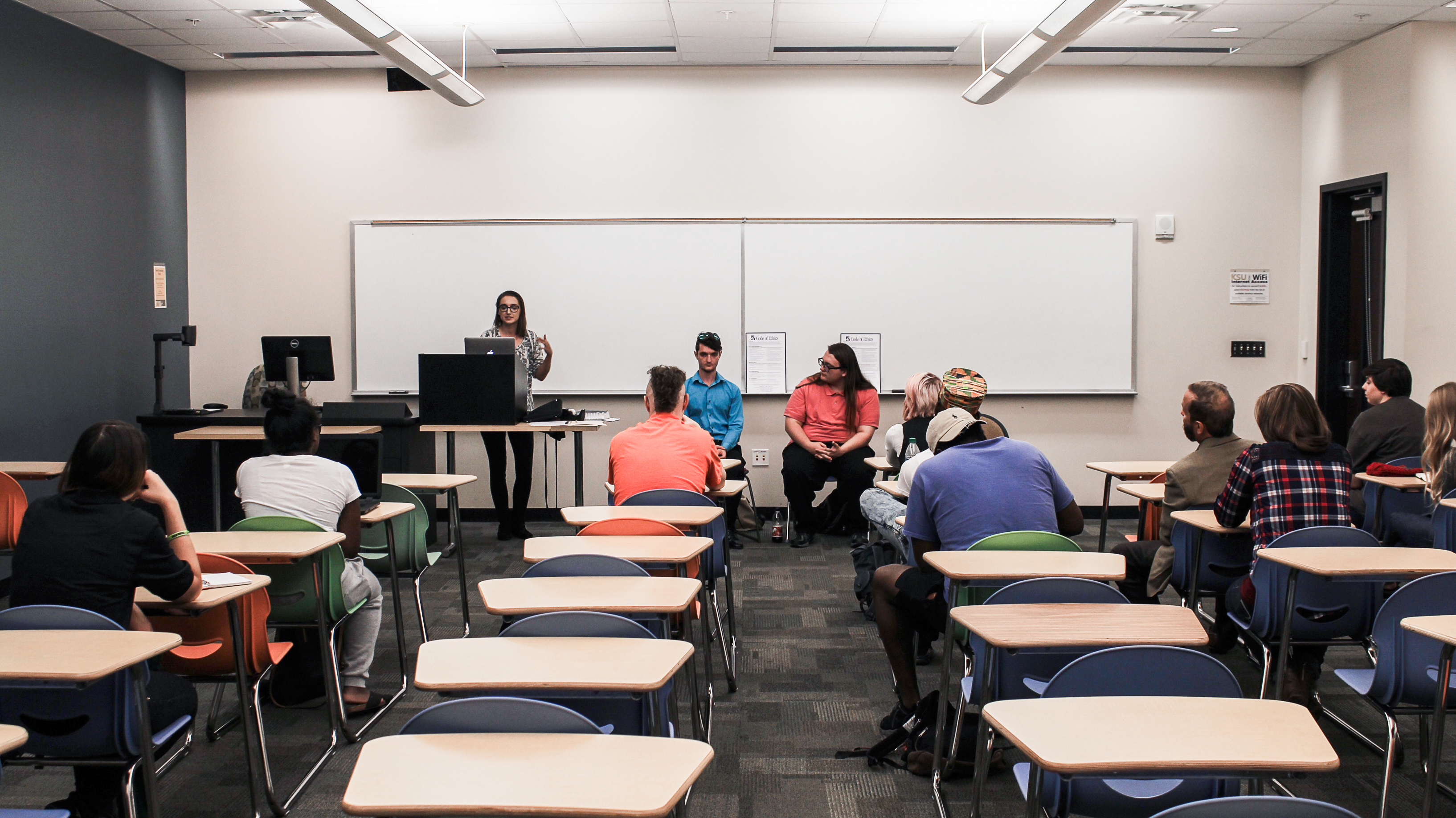Kennesaw State made progress on initiatives involving the Comprehensive Administrative Review in January 2019 when the Center for University Learning launched new training for supervisors and managers to increase internal communication.
The program is intended for newly hired or promoted supervisors and managers who work with direct reports, and it serves to provide policy, procedural and administrative information and resources to such individuals.
While the training is meant for new or promoted faculty, those in such positions who would like to refresh themselves on the content are also welcome to attend.
The trainings will occur in four different sessions throughout March and April. Participants will be required to complete all sessions to complete the program. The first session will cover human resources and the Center for University Learning. The second session will cover the Office of Fiscal Services followed by the Office of Institutional Equity and Human Resources, and the final session will cover Legal Affairs and the Office of Fiscal Services.
The training sessions are a part of the overall plan within the CAR brought forth to the University System of Georgia by Chancellor Steve Wrigley in 2017 and follow a KSU-specific schedule implemented by a committee.
The supervisor and manager training follows February’s CAR focus which involved efficient communications at multiple levels of the university. Overall, the training is on schedule with phase two for the CAR which will end in April 2019 with a phase report based on data collection, activity and analysis. The phase originally began in April 2018.
The main goals of the CAR involve making administrative functions more efficient, enhancing support for the missions of Georgia universities, achieving greater affordability and access for students and strengthening and enhancing student support services.
Similar to other universities, KSU is expected to design structures to meet teaching, research and service missions, develop and implement 21st-century operational models, gain staff input to increase efficiency at all levels and identify administrative cost savings that can be redirected to core functions of teaching, research and service.



